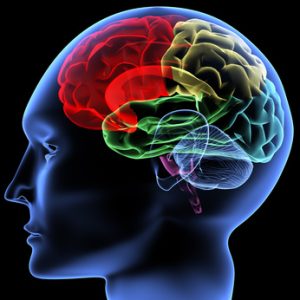Set the Stage for Stellar Performance: How Are The People on Your Team Processing Information?
 Ever sit in a tense meeting where tempers are beginning to flare? Listening to the disagreeing parties, does it suddenly hit you that they are violently agreeing!? How can that happen? What is going on? The same reality is being addressed – so why all the commotion?
Ever sit in a tense meeting where tempers are beginning to flare? Listening to the disagreeing parties, does it suddenly hit you that they are violently agreeing!? How can that happen? What is going on? The same reality is being addressed – so why all the commotion?
Everything else being equal, it might be a difference in temperament; i.e., the individuals gather and process information differently.
Temperament can also be called “wiring.” Wiring refers to pathways in the brain. Take two people who have different wiring and ask a simple question like, “How’s the project doing?” PET scans of these two brains will actually show different areas of their brains being active.
Let’s look at two aspects of neural wiring and information gathering/processing as viewed by Carl Jung. They are the irrational and the rational. For each of us, one mode predominates. We can do the others, but just prefer the one. Looking at how these modes operate can shed light on why people agree or disagree. Also, it can show how team members may bond or play “odd man out.”
The irrational refers to how we gather information. It’s called irrational because it is instinctual – as in non-rational. There is no thinking involved. We just do it. Here are some descriptions of people you might recognize who favor the irrational path:
- The “Aha!” individual seeing patterns and boiling them down to sharp insights. Details are secondary and there is a comfort with unclear situations.
- The groundbreaker. Exploring just comes naturally. There is a desire to exhaust all the possibilities and challenge the status quo.
- Brings order and clarity to situations by linking the present with the past and working to develop precise pathways to the future. Detail and clarity are extremely important.
- Makes things happen – now! There is no room for nonsense. “Action” is the word of the day, every day. “This way has always worked” and “urgency” are two things they stress.
Do any of these look familiar yet – in yourself or people you know?
The rational refers to when we have the data we need to process information. This processing is what Jung called the “rational.” Here’s how some of the rational pathway behavior might look:
- Focuses on the importance of ideas especially those about which they feel strongly. The main drive is priorities based on convictions.
- Loves to coach people and looks after their welfare. Building positive relationships is important.
- Focuses on theory and loves to explain the how and why of things.
- Brings organization and structure to situations, working like a conductor massaging roles and responsibilities until they are well defined and work is flowing.
Your Team
Has a specific person popped into mind when reading the descriptions? If so – great! It signifies the process of empathizing with others. This is key for establishing leadership and forming teams.
If you’d like to learn more about the critical role of people and politics in business, LISTEN TO OUR PODCAST.
If you’re ready to take an interesting ride into the psyche of your team members to figure out how to facilitate their (and your!) best performance, TAKE THE CHAOS QUIZ.

Recent Comments